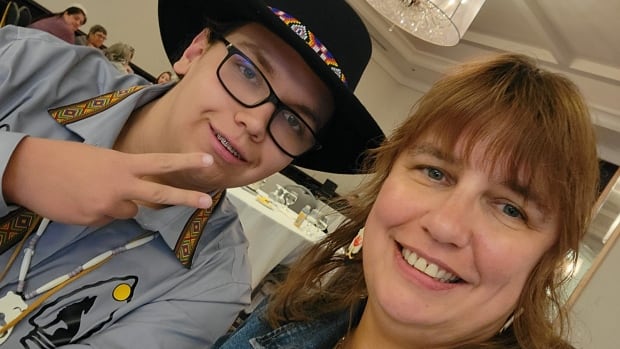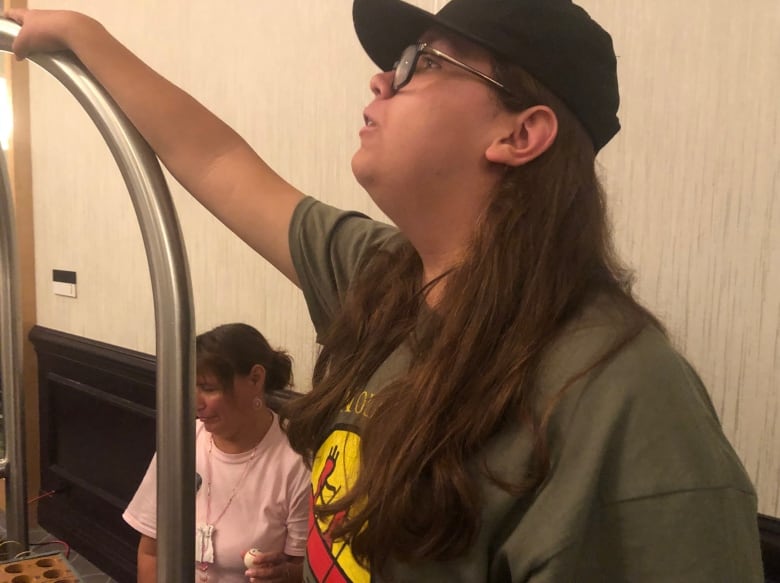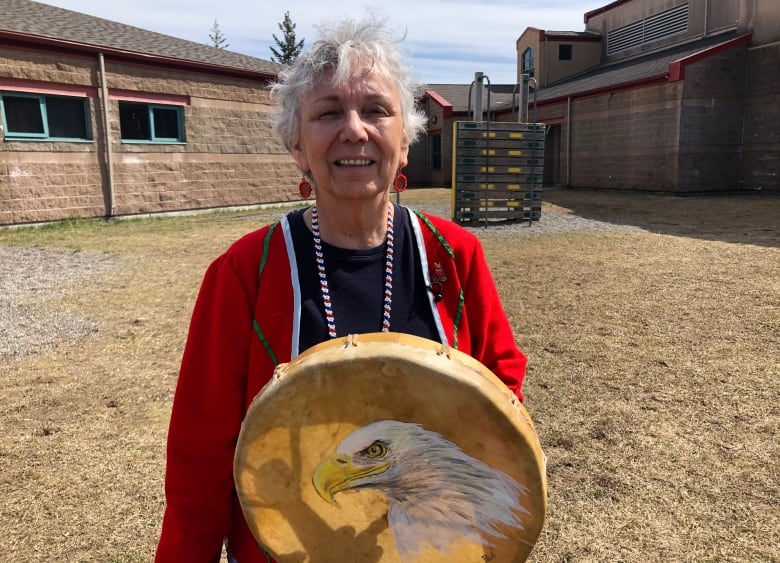
Standing at the front of a ballroom at the Delta Hotel in Fredericton, 17-year-old Wyatt Moulton holds up a bingo ball and bellows the numbers. First in Wolastoqey, then in English.
It’s bingo night for delegates at a language conference for the six Wolastoqey First Nations in New Brunswick.
“It feels good calling bingo for the elders,” said the teen from Neqotkuk. “It’s a way of making our language modern and using our language in a way that shows that our language can evolve.”
Wyatt’s mother and grandparents taught him his language. These days, having three generations in one family who all speak Wolastoqey is pretty much unheard of, he said.
The conference has reminded him that there are a lot of speakers out there, and “it feels amazing” to be surrounded by them.
“It feels like when we work together we accomplish our common goal of bringing back our language, taking back our language, taking back our space.”
Good night, good morning, I love you
Wyatt is a regular at weekly bingo nights at Neqotkuk. He also translates books and stories.
And after high school, he plans to continue learning his language.
He credits his grandparents, Elders, and his mother, Wendi Moulton, for passing it on to him.
Wyatt pegs his language skills at a “basic intermediate” level.
“If I wanted to really flatter myself I’d probably say I have the fluency of a three-year-old,” he said with a laugh. “I’m kind of speaking a toddler’s Wolastoqey, but I’m still learning.”
When her son was growing up, Wendi said, she made sure the last thing he heard when he went to bed at night and the first thing he heard in the morning were words in his language.
“Wəli pemolakwiw — Goodnight. and Wəli sapawiw — Good morning, Kəseləmol — I love you,” she said, laughing.
“I’m just so proud, I’m amazed,” Wendi said as she watched her son.
“I’m just happy because he could be off doing other things like teenagers at his age would be doing but no, he just immersed himself in our culture. Like not just the language, he drums, he sings, he’s just so involved with our old way of life.”

‘I’m quite alone’
Wyatt would love it if other people his age could speak to him in Wolastoqey.
“I’m quite alone when it comes to speaking the language,” he said.
He is the only one at his school who is a speaker and for him, “it really sucks.”
“I call for my fellow youth to … learn as much words as they can. You could learn one word. You could learn 100 words. It doesn’t matter. Your ancestors hear you and they love hearing you. So speak your language. Skicinowato nitapiyik — Nit-te psiw.”
Wendi said her son may not see it, but she believes he is inspiring his peers. She remembers being a teenager herself, and not wanting her parents to speak to her in Wolastoqey.
“‘Cause it wasn’t a thing when I was growing up. I even plugged my ears and was like ‘Aaahhh, don’t talk to me that way.’ So yeah, now I kind of regret it.” Wendi paused and added: “I’m glad he’s bringing it back, you know.”
Elders ‘so happy and so proud’
Before the bingo game gets started, Elder and language carrier Imelda Perley gave Wyatt a few phrases to add to his bingo-calling repertoire.

They laughed together as they went over the Wolastoqey words for numbers, and how to say things such as “wild number,” “jackpot” and “four corners.”
Perley said she cried the first time she heard Wyatt calling a Thursday night Elders bingo game in Neqotkuk.
“Soon as I heard it — I didn’t know that was going to happen — I lost it. I was so happy and so proud, and I had to go and tell him.”
Wyatt’s voice started to crack as the bingo game went on.
His mother laughed when that happened. She was sitting next to him, pulling the bingo balls and handing them to him one by one.
“I love it. I do. I love it,” she said of hearing him speak Wolastoqey.
And she knows the elders love hearing it too.
“It’s just a big thing for them to be able to see and hear a young person speaking the language and having such passion about it. Yeah, he’s an inspiration not just to his own peers, but to the Elders as well.”